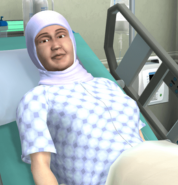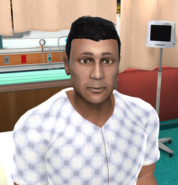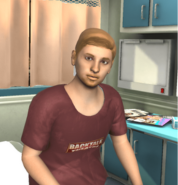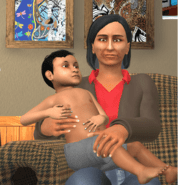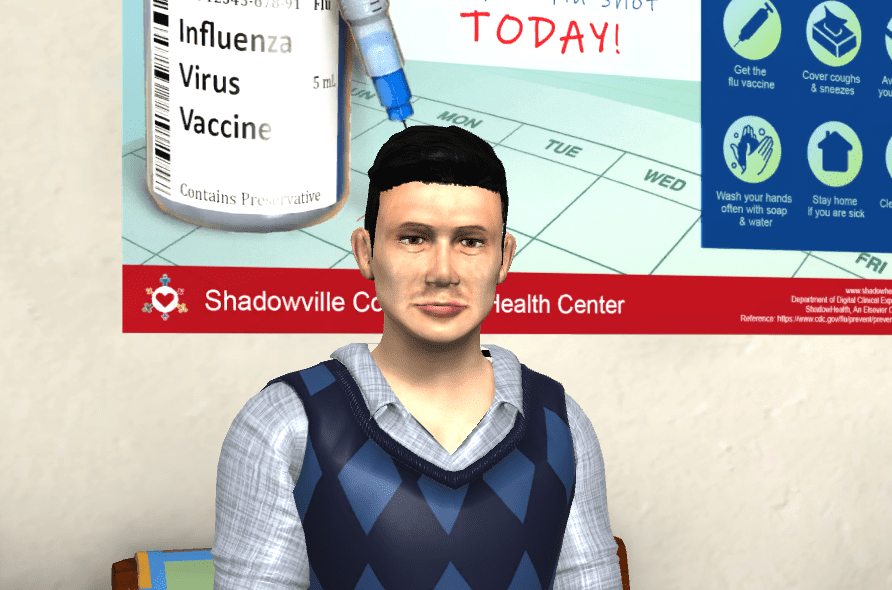
Digital Standardized Patients: Quan Van Tran
When students first meet Quan Van Tran, 50, they encounter him in a clinical setting shortly after he has received a positive diagnosis of HIV. Quan is a Vietnamese American who immigrated to the United States. In previous years, research shows the number of HIV diagnoses among Asians in the U.S. increased, and 1 in 5 Asians living with HIV in the U.S. did not know they had it. Quan also does not think of himself in terms of sexual orientation. His assignment is imbued with a need for students to demonstrate cultural humility. HIV is a sensitive topic and the depth of history required for contact tracing may also be challenging for new nurses. He is featured in Community Health DCE.
When obtaining a patient’s sexual history, it would be inappropriate for students to ask Quan to think of himself in terms of his sexual orientation and will push back if students continuously ask inappropriate questions about his identity instead of appropriate questions about his sexual history. This is a feature in Shadow Health that makes students think carefully about obtaining patient history and obtaining medically relevant behavior.
Studies show nurses often lack the proper education to adequately provide safe and competent care to the LGBTQ+ community (Kroning et al., 2018). It was important to the Shadow Health team to call attention to a specific vulnerable and underrepresented population. This character was developed with a nursing expert from the Vietnamese American Nurses Association. His demographics as an older Asian American man represent a growing population for new HIV infections, which is underrepresented in healthcare education.
Additionally, Shadow Health recently conducted research, published in Clinical Simulation in Nursing, to determine if virtual patient simulations can effectively teach nursing students about patient care issues they may not encounter as part of their clinical education. The team focused specifically on a patient living with HIV, recognizing that people living with HIV face stigma and discrimination in society at large and in the healthcare system itself. Findings suggest that participation in a virtual simulation of a patient living with HIV can positively impact nursing students’ attitudes.
Simulations in Shadow Health
- Undergraduate DCE: Community Health DCE


